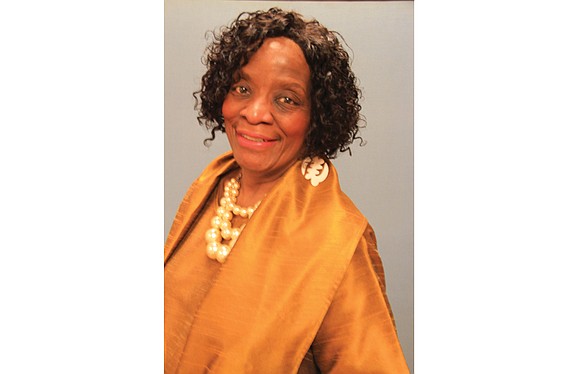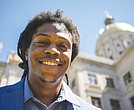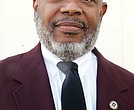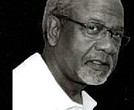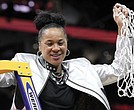Personality: Dr. Renata A. Hedrington Jones
Spotlight on Black Social Workers’ NIA Lifetime Achievement winner
4/19/2018, 11:09 p.m.
Growing up in a strong, close-knit family with a hard-working, disciplined, kind and unconditionally loving mother and aunt are the ingredients that produced Dr. Renata A. Hedrington Jones, winner of the National Association of Black Social Workers’ most coveted award.
Dr. Jones was surprised with the NIA Lifetime Achievement Award on April 5 during the NABSW’s annual conference in San Diego celebrating its 50th anniversary. The organization is dedicated to enhancing the quality of life and empowering people of African ancestry through advocacy, human services delivery and research. Members in chapters across the nation are seasoned practitioners in the field who push for social change, justice and the development of African people in the United States and abroad.
Dr. Jones was nominated by the organization’s Richmond chapter, many of whose members are her current and former students from Virginia Commonwealth University and Virginia State University, where Dr. Jones has taught as an adjunct faculty member.
“The Sankofa principle NIA means purpose,” Dr. Jones says, reflecting on the award. “During my career, I was doing all the stuff that I thought I should do and didn’t think anyone was paying attention to me.”
Dr. Jones started her social work career working in the juvenile justice system and later as an adoption social worker. For more than 30 years, she worked with students and their families as a social worker with Richmond Public Schools before retiring.
In a letter of nomination from the Richmond Chapter of the National Association of Black Social Workers, she was lauded for her influential leadership and strong voice for social change in the community.
“From working with homeless populations experiencing severe mental illness, to finalizing adoptions for special needs children, to working in hospital settings with emotionally dysregulated youth, Renata has demonstrated a commitment to enriching the lives of vulnerable and underserved minority populations,” the nomination letter states.
She also was lauded in the letter for her work as an adjunct teacher, “cultivating the next generation of culturally sensitive and social action-oriented social work practitioners, educators, therapists, legislators, directors and community development leaders.”
“It’s interesting to hear what people think of what you do,” Dr. Jones says. “I fuss a lot at young people because I think they hear a lot better when you are fussing. It’s called strong encouragement.
“I give unconditionally because this is what God wants me to do,” she continues. “I make sure that my students have experiences, professionally and academically, so that they know the importance of them giving to the community and to our people.”
A native of Chicago, Dr. Jones lived on the Southside until she was 6, when the family moved to Washington, around the corner from Howard University. That was the early 1960s, she says, and her father was no longer with the family. Her mother held down three jobs to make sure all of the children had life’s necessities.
“She was the first black person in the neighborhood to buy a house that we were living in,” remembers Dr. Jones. “My mom had a third-grade education, yet she was real savvy and always figured out how to do things that black people, at the time, were not supposed to do.”
Her mother, a government employee who worked in the White House, cooked for President Nixon, Dr. Jones says. She would take in family members and others who lived in the household and became a part of the family. “My mother was a giver and showed me what unconditional love and service to the community really meant,” Dr. Jones says.
It guided her in going into social work.
“As a social worker, you can touch everybody’s life because we probably have more credentials in terms of being certified to provide human services,” Dr. Jones says. “We work internally and externally with systems — child welfare, mental health, intimate partner violence, domestic abuse and more — and have a clinical and social justice insight to make things better for society.
Dr. Jones sees the spirit of God in all of her work.
“When we are directed by Him to do something, you do it,” she says. “The NIA Award confirmed that for me.” Meet an advocate influencing the lives of others and this week’s Personality, Dr. Renata A. Hedrington Jones: Latest accomplishment: Recipient of the 2018 NIA Lifetime Achievement Award from the National Association of Black Social Workers.
Date and place of birth: July 3 in Chicago.
Current residence: Henrico County.
Alma maters: B.A. in social work, Virginia Intermont College, 1975; master’s in social work, Virginia Commonwealth University, 1987; and Ph.D. in human services, Walden University, 2015.
Family: Husband of nearly 40 years, Lonnie Jones Sr.; sons, Lonnie Jr., Charles and Miyah; daughter-in-law, Larena; and two grandchildren, Caidyn and Sundiata.
Occupation: Retired social worker with Richmond Public Schools; contributing faculty at Walden University; and consultant.
What I do: I try to make life better for others through education, mentoring and life experiences. I write programs to assist with human services. I love teaching on the collegiate level. I believe God has blessed me to share through education. I have had an abundance of experiences that are valuable to the social work profession.
How I received news that I was selected the award winner: I was at the Cenie Jomo Williams Annual Luncheon. Cenie was the founder of our organization. Each year, the awards committee announces the recipients. I was telling my committee member that I was going to my room, I looked up and everyone was standing, yelling and applauding. I ask him what happened and he said, “You won the NIA.”
First reaction: I cried uncontrollably. The president just hugged me and talked to me. Others on the dais told me to stop crying so they could take pictures. I thought of my mom and how proud she would be. I thought about obstacles in life and how I made it.
What this honor means to me: It means that God is full of blessings and is in the blessing business. My peers, colleagues, mentors and mentees thought enough of me to nominate me for this prestigious award. I have never thought of what I do. I believe that God ordained me to do what I do. God blessed me by allowing me to work for Him.
Why and when I became a social worker: I became a social worker because I wanted to help someone. In undergrad, we were required to do a “community service project.” My assignment was with the Bristol, Tenn., Juvenile Court. I loved it. The children were hilarious. I saw what I could have been had my Momma and Auntee not been there.
Social work is: The most gratifying profession where one can be compassionate, caring and cooperative. Social workers must be competent to serve diverse populations with an attitude to serve and help others. You must see the spirit of God in all that you do in this profession. After more than 40 years, I am not tired, frustrated or unhappy because I believe God is with me.
Role social workers play in society: Social workers have the capacity to heal the masses from the hurt experienced. Social workers graduating with a BSW have acquired the clinical skills so desperately needed to impact social change and assist people in being more successful, emotionally healthy and productive citizens.
The importance of social work in our society: Social workers concentrate on the diversity in our society. Other professions seek to change people and their cultures rather than see everyone as a capable and contributing individual who is valuable to the community and the world. Empowerment and dignity are key.
Difference between social work practice when I began and now: The social workers today have more available. In my era, we had to fight to use formal assessment tools. Other professionals tried to prove themselves better skilled than we were. I believe it was the fact that we were better prepared to serve.
Students entering the field today are: Excited about the profession. They can be the bridge that fills the gaps in service. They are aware. The technology has proven to be beneficial to them. They are ambitious. I am impressed and moved by their commitment. You only need to encourage them a little and they move quickly.
Their greatest challenge: Working with older people who don’t understand them. We call them the “microwave generation.” They want things quickly. I think that is fine as long as they serve people with a servant heart. They cannot forget that they have been blessed to work with God’s most precious children. If you hurt them, He will not be pleased.
Advice to aspiring social workers: Sit at the feet of the elders. They are wise and informed. And to the elders: Teach them well. The young social workers are our legacies.
How I start the day: I pray and I say, “Lord, I am glad to see you this morning. And as for me, Father, I would rather be seen than viewed.” I then have my coffee in my cream.
A perfect day for me is: Laughing and talking to my husband. Playing with the puppy, Cocoa. Chatting with family and friends. Not missing any appointments.
A quote that I am inspired by: “You don’t know where you are going unless you know where you have been.”
Something I love to do that most people would never imagine: Crafts. I sew, make jewelry, crochet and like to do things with my hands.
Best late-night snack: Utz potato chips.
How I unwind: Watching “Murder She Wrote” and “Midsomer Murders” and having late-night Chardonnay.
The top of my “to do” list is: Go back to San Francisco to visit my grandson and go to Ghana and to have a women’s conference very soon titled, “Sisters, It’s Time to Unpack Your Luggage & Live.”
The best thing my parents ever taught me: My mom: “You can cook anything if you can taste it;” my Auntee and Lou Lou: How to make things with my hands; and “Treat others the way you wish to be treated.”
The book that influenced me the most: “Righteous Self Determination: The Black Social Work Movement in America” by Dr. Patricia Reid-Merritt; “Race in America: How a Pseudoscientific Concept Shaped Human Interaction” by Dr. Reid-Merritt; and anything by Angela Davis.
What I’m reading now: “Black Pain” by Terrie Williams; “How to Love a Black Man” and “How to Love a Black Woman” by Dr. Ronn Elmore.
My next goal: To finish my book, “My Four Cornered Room.” I want to tell other African-American women and girls that “Yes, you can!”

